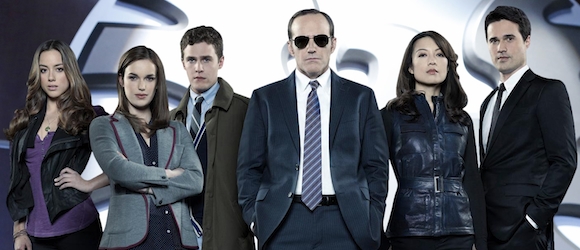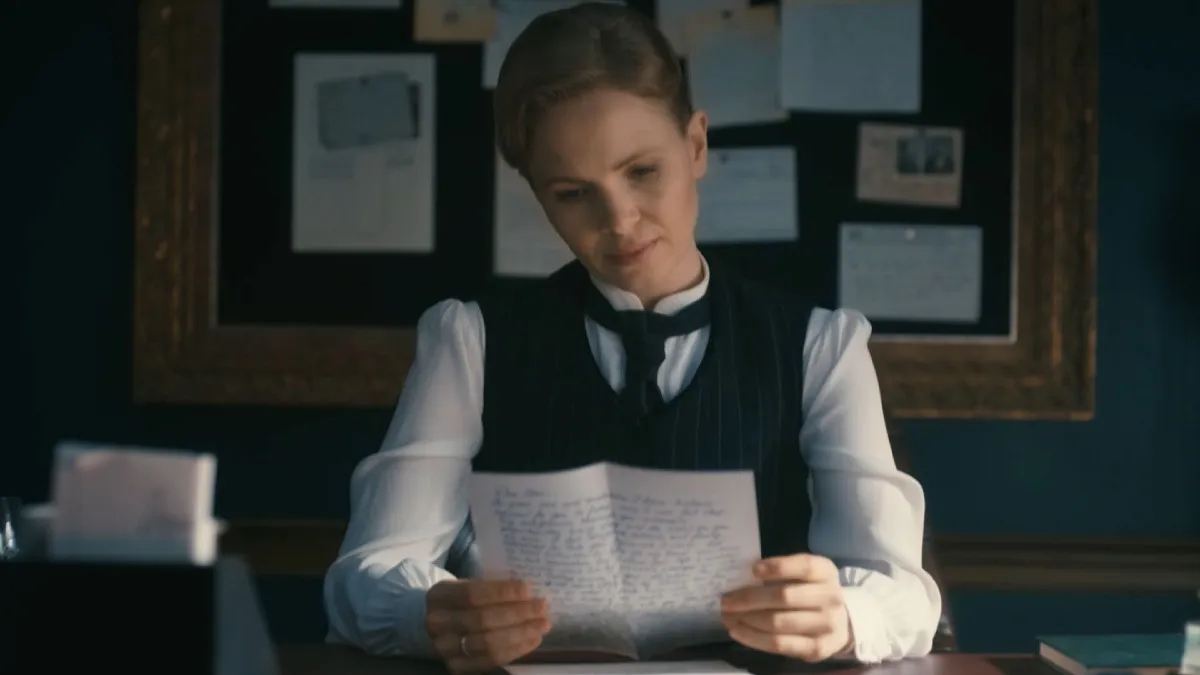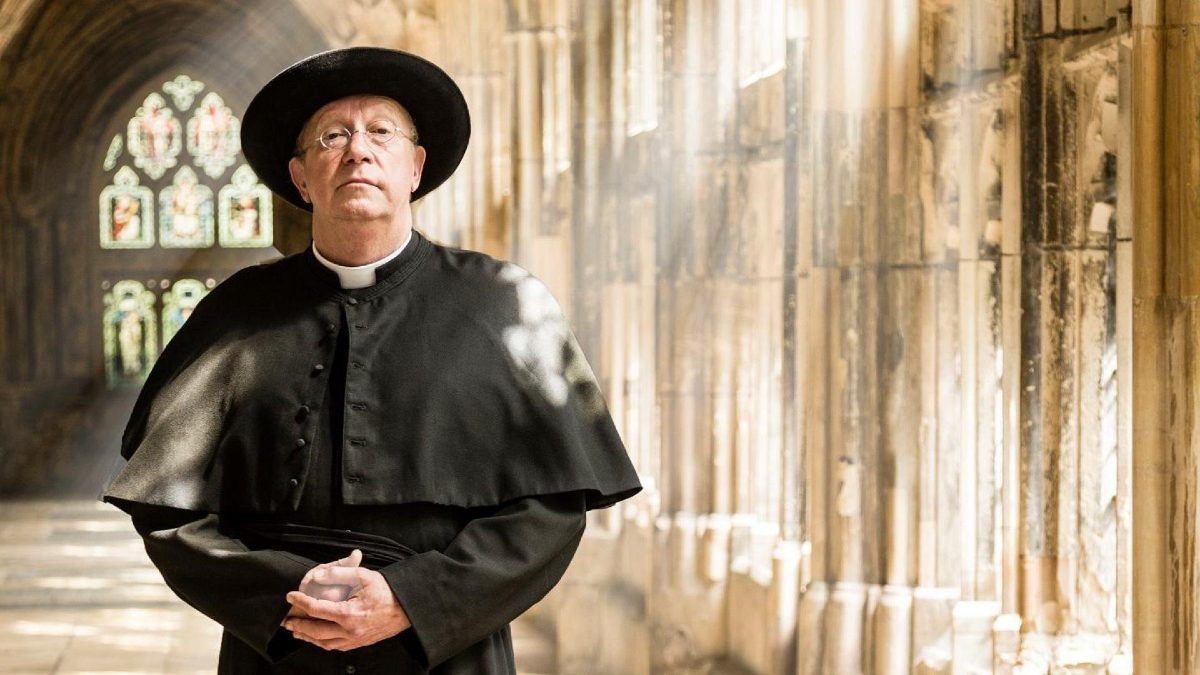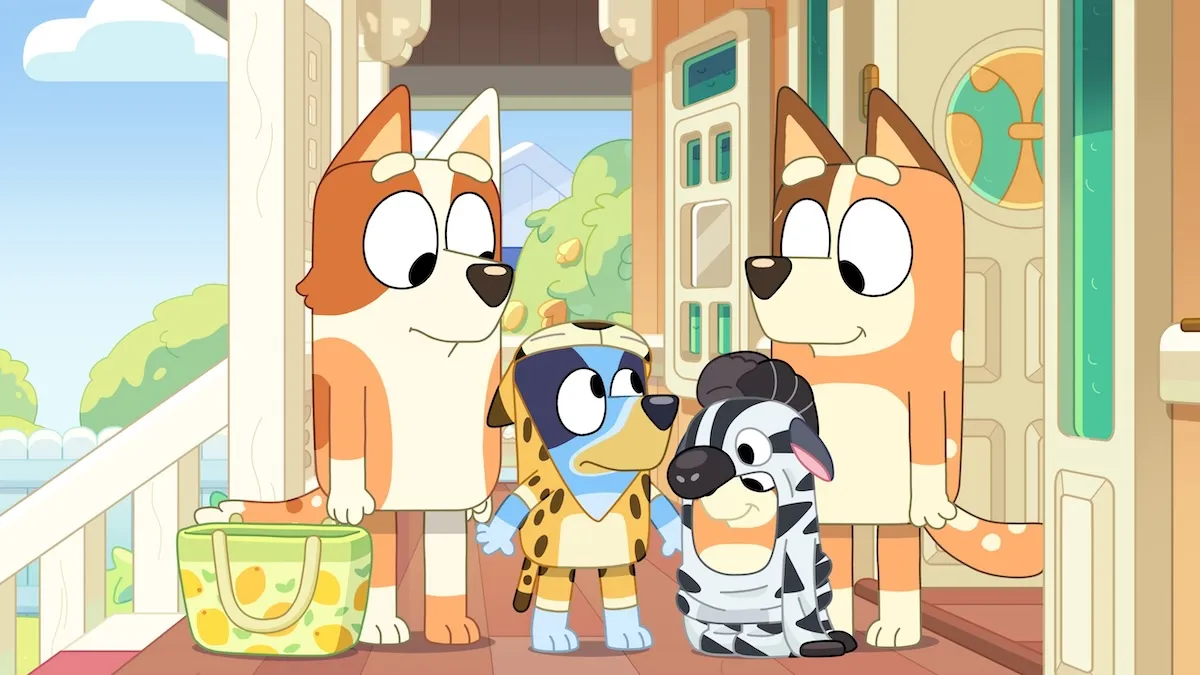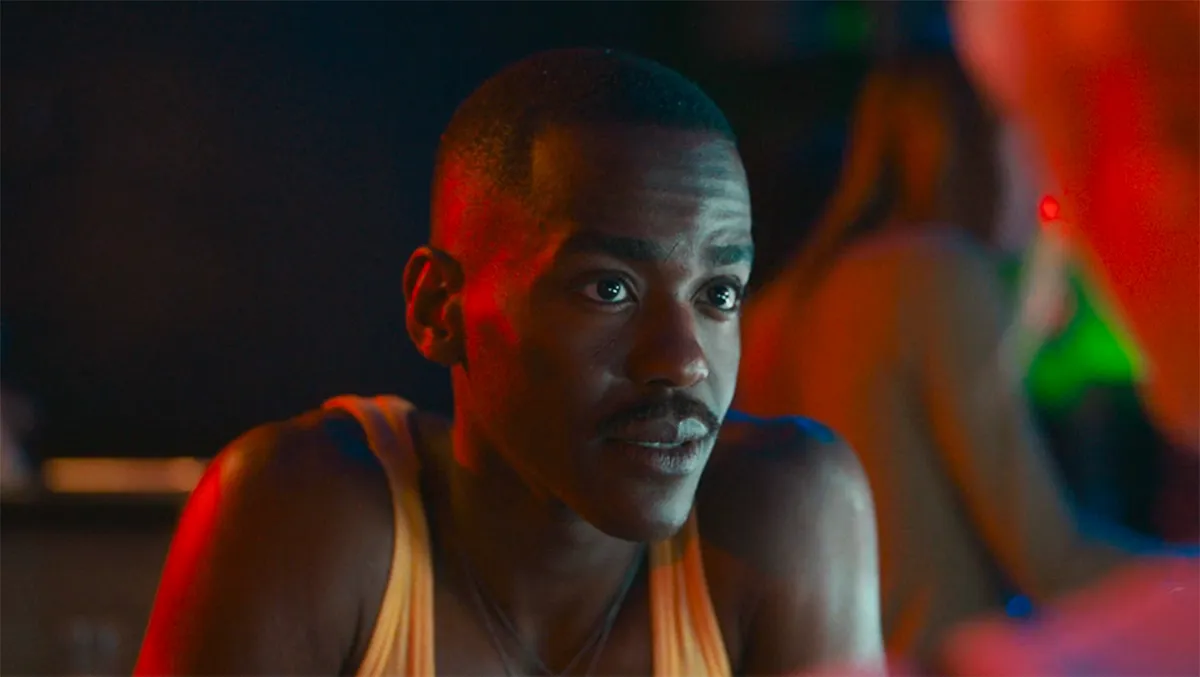Agents of SHIELD is an ambitious project that had a lot of fan hopes tied up in it. A Marvel television series would be exciting enough in its own right, even without the promise of sharing a continuity with a superlatively successful movie franchise. And while the show has plenty going for it, it’s safe to say that it wasn’t the triumphant return of Joss-Whedon-style ensemble sci-fi in prime time television hit everybody was hoping it would be. So, a week out from the show’s final first season episode (it will be returning for a second season in the fall), lets talk about what worked and what didn’t in Marvel’s Agents of SHIELD.
What Went Right
Its Ambitions
Agents of SHIELD billed itself as a show about the little people of the Marvel Universe, the folks without superpowers or flashy suits who come in to clean up the messes of The Avengers and all their buddies (or soon to be buddies). We were going to get invested in the lives of some regular human folks in the Marvel Universe, and be asked to think about the full impact of the existence of the Avengers on the world around them, and not just when they were saving it. It was a chance to really play with the expanded MCU without the high stakes of movie production. One botched movie is a mistake that lasts months. One bad episode? Eh, there’ll be another next week.
I’ll discuss later whether SHIELD lived up to these goals, but what I want to stress is that those goals were good ones. The prevailing opinion in many comics companies these days (and indeed in some comic book movie adaptations) is that superheroes are made more “adult” and “significant” by the inclusion of lots of realistic or extreme violence and a heavily pessimistic view of human nature. I’ve always felt that it’s when stories successfully acknowledge how superheroes impact normal every day life and the legal, political, and socioeconomic systems they exist within is when the genre really reaches a kind of maturity. Whether SHIELD was doing great or poorly, I was always going to root for it.
Women in Genre Fiction
Early on, it was very heartening to see Agents of SHIELD present us with a gender equal main cast. Not to mention to watch as it established that the biggest physical powerhouse in the group was a woman, that half of its scientific minds were women, and the show’s relatable audience proxy character was also a woman. It’s a show that has established that Nick Fury’s most trusted agents are 75% female. I’ve spoken before in my recaps about how great I think Melinda May is as a character in a popular culture where “lady spy” is nearly synonymous with “scantily clad promiscuous villain and/or damsel.” And then the guest stars! We begin right out of the gate with Camilla Reyes, leader of a Peruvian commando team, and follow with Akela Amadour, SHIELD operative to rival Romanoff, Raina, the show’s most unnerving recurring villain, Agent Victoria Hand, the only person other than Nick Fury who saw Hydra coming, Hannah Hutchins, Lorelei, Sif, Agent May’s mom, and Audrey the cellist.
And that’s just in front of the camera. It’s easy to see where this abundance of female guest stars comes from when you realize that close to two thirds of the season’s episodes were written or co-written by a woman. Three episodes were directed by women, which is more than you can say for the last five years of Doctor Who, to pick one example.
While the show was slow to react to criticisms of its predominantly white main cast of characters, and hasn’t reached its full potential to represent diversity to a mainstream audience that could really stand to see it (for example, I’d love to see the show establish canonically that orphan-of-supernatural-origin Skye identifies as as mixed-race Caucasian/Asian or as a person of color), it has showed late season improvement (the establishment of Antoine “Trip” Triplett as a main character) on that aspect of diversity.
Interpersonal Relationships
If there is one great thing that Agents of SHIELD has done entirely consistently, it’s presented interpersonal drama in such a way that doesn’t perpetuate myths about attraction or glorify unhealthy relationships. Not to mention that the show does a pretty good job of portraying a non-romantic sexual relationship without demonizing non-romantic sexual relationships.
It’s also great that the show’s most unequal romantic relationship, Ward and Skye, is swiftly revealed to be based on a foundation of lies, and that those lies are discovered almost immediately, so that watching an abusive relationship in which one party doesn’t realize they are being abused didn’t become one of the core subplots of the show. Further, as soon as Skye realizes Ward’s true allegiance, there’s no regret in her mind for what might have been, no sense that she’ll forgive him of evil acts because of “true love,” just indignant betrayal.
While I was disappointed somewhat at the late-season back seat that Simmons’ character eventually took to Fitz’s unrequited crush on her (episodes in which she engages in a subplot independent of Fitz are fairly outnumbered by episodes where the reverse happens, and Fitz is very often brought on combat missions, something I found odd for two characters who are we are told have very similar non-combat qualifications), I love that she was never drawn as being responsible for Fitz’s own feelings about her. I love even more that when he eventually confessed his feelings, she didn’t immediately change hers and fall into his arms.
That said, the show does have one glaring fail episode on this subject, and that’s “Yes Men.”
What Went Wrong
A Misuse of Theme
A show that bills itself as dealing with the little people is setting itself up to be about the underdogs, the folks without superpowers, the folks whose lives were not in any material way “saved” by the Battle of New York. But what we got in SHIELD was a show about an elite team from a nigh-unstoppable government agency with functionally unlimited resources and all the advanced technology that a half-century-long campaign of hoarding the brightest scientific minds and alien artifacts could create. Every character death in the course of the show (barring Victoria Hand’s) turns out to have been fabricated in some way (or in the case of Eric Koenig, it may as well have been). “That’s just our advanced technology” is a frequent excuse to handwave small plot elements. These factors eliminate much of the “underdog” factor from our heroes, and in fact, our heroes were most often pitted against actual underdogs who Raina/the Clairvoyant/Hydra had gotten to first, like Mike Peterson, Renshu Tseng, and students Seth and Donnie.
Because characters are badass in reverse proportion to the extent to which they have power over their situation, some of the most endearing and impressive character moments in the season came out of the few moments when our cast acted without any resources at all. And I don’t mean Howling Commando tech from the fifties, I mean Skye, unable to go near an electronic device, flimflamming her way into a CEO’s computer on pure Bluff checks to find Coulson’s location, and Simmons, quarantined in her laboratory to create a cure for the impossible disease that could kill the whole crew. Overall, though, moments when our characters were genuinely flummoxed by their opposition for any time longer than half an episode were very rare. Even after Hydra’s takeover, the team is handed a pristine, secret base of operations on a silver platter. The most glaring example here is Cybertek’s much-hyped super soldiers. For all their supposed threat, they never actually injure or stop our characters from accomplishing their goals of the episode (at their best in “The Bridge” they only manage to slow everyone down). Even in the finale, an entire squad of them are dispatched within minutes of the opening of the episode by only four characters.
Overdependence on Payoff
The folks behind Agents of SHIELD, writers and actors, have consistently gone out of their way to stress that the end of the show would bring something fascinating and worth the wait. Halfway through its near continuous nine month ratings slide, SHIELD‘s social media even took up the cause with the hashtag #itsallconnected, attempting to impress upon fleeing viewers that if they missed an episode now they’d regret it when the show finally got to its payoff.
But the fact that SHIELD even had to come out and stress it is precisely the problem. Disguising plotlines as you establish them is one thing, an overarching mystery that remains a mystery requires you to convince your viewers that a lot of what you’re establishing is of little significance or interest. But if you’re going to go down that road you must distract them with something that does seem significant and interesting. Misdirection is what you want, not obfuscation. Say what you want about Steven Moffat‘s intricate mysteries that are inevitably solved by solutions that raise as many questions as they answer, at least the set up remains interesting.
Take Ward, for example. He was, by an enormous margin, the least interesting main character on the entire show: the most widely-used archetype, the most familiar backstory, the most predictable romantic entanglement… right up until the exact second that it was revealed that he’d been a Hydra agent all along. Does that make previous episodes more interesting to rewatch? Arguably. Does it retroactively transform the time I spent watching those previous episodes into more interesting times? No.
It Was Hamstrung By Its Required Continuity
Imagine, for a moment, a universe in which SHIELD revealed that Ward was a mole in SHIELD for some sort of evil organization at the end of “0-8-4,” instead of the hint that Skye was that was almost immediately dropped without consequences. The rest of the season is now imbued entirely with tension: How angry is May going to be when she finds out who’s pulling the strings of her no-strings lover? How betrayed will the Science Siblings feel after befriending their new combat buddy? Did Ward accept Skye as a trainee in order to corrupt her? Is it working?
The Marvel Cinematic Universe has succeeded in creating a working cinematic continuity by making sure that their movies put demands on continuity, and not the other way around. You want to kidnap the president in Iron Man 3? Don’t worry about explaining why SHIELD or Captain America didn’t get involved, just do it. You want to destroy SHIELD from the bottom up in The Winter Soldier? Don’t worry about it, just do it.
But, apparently, if you want to make a show about SHIELD, you better make it fit with Winter Soldier. No, you are absolutely not allowed to hint that the villains might be within SHIELD in any way, lest you spoil the movie. Yes, you must premiere the better part of a year before Winter Soldier‘s release, forcing you to stretch six episodes over four winter months in 2014.
Continuity was supposed to be one of Agents of SHIELD‘s biggest strengths, and it’s clear that it actually became one of its biggest problems. Marvel Entertainment looked at two production teams, both of which wanted to talk about SHIELD as an organization, and decided that one of them would have to bend over backwards for the other, rather than, say, allowing SHIELD to drop hints about Hydra or pushing its premiere closer to Winter Soldier‘s release. I mean, we’re all geeks here, we all understand and have used the phrase “just stick with it, it’ll get good, you just have to wait.” I, myself have played Kingdom Hearts 2. Sixteen episodes of a twenty-two episode series is too long to wait for a show to get around to being what it clearly wanted to be from the beginning. I’ll even say that an entire first season is too long to wait for a show to get around to being what it should have been in the first place: a show about Director Phil Coulson picking up the pieces of SHIELD: SHIELD as an underdog, premiering one month after the release of Captain America: The Winter Soldier.
What This Means for Other Marvel TV Projects
Fortunately, Agents of SHIELD‘s biggest problems are ones that will probably not affect the Marvel shows coming down the production pipeline. Marvel’s Agent Carter, for example, is set in the 1950s, and therefore will not be expected to tie in to current Marvel movie releases or, now that the Hydra’s out of the bag, hold its plot developments until a movie says “go.” Presumably, anyway. The four series based around Daredevil, Luke Cage, Jessica Jones, and Iron Fist will be premiering on Netflix and so will be released in one glorious binge watching lump, meaning that their story arcs won’t have to keep up with the developments of their big brothers in Hollywood. I’m still looking forward to all of them, and, to a certain extent to Agents of SHIELD‘s second season. There is, after all, something to be said for having room to improve.



